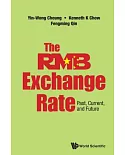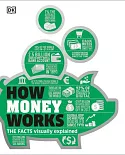Government acts as entrepreneur when its involvement in market activities is both innovative and characterized by entrepreneurial risk. Thinking of government as entrepreneur is a unique lens
through which the authors of this book examine a specific subset of U.S. government policy actions. As such, their viewpoint underscores the purposeful intent of government, its ability to act
in new and innovative ways, and its willingness to undertake policy actions that have uncertain outcomes.
Viewing particular policy actions through an entrepreneurial lens is useful in two broad dimensions. First, it underscores the forward looking nature of policy makers as well as the need to
evaluate the social outputs and outcomes of their behavior in terms of broad spillover impacts. Second, government acting as entrepreneur parallels in concept similar activities that occur in
the private sector.
Government as Entrepreneur is the first broad effort to emphasize the entrepreneurial aspects of governments. It is also the first systematic treatment of U.S. innovation policies to promote
the formation of strategic research partnerships. It will foster a new perspective on the role of government and how incentives for government to act entrepreneurially might be
institutionalized; it will serve as a vehicle for policy makers and scholars to think about the entrepreneurial actors in an economy, in a new way.





















